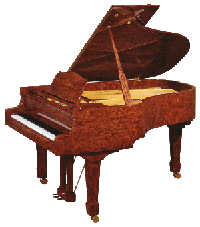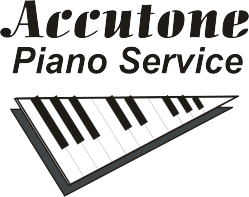In lean times, we sometimes think of selling the family piano. Or, we decide that good pianos are much cheaper now, and why not replace the one I have for a better one? Maybe we need to update the insurance policy, and getting the piano appraised is suddenly a front-burner issue. That brings up the question, how much is my piano worth?
Unfortunately, if you purchased a piano a few years ago, it might not sell anywhere near what you paid for it. Prices are generally down because of the glut of used pianos on various sites like Craigslist. This forces prices down on existing pianos because the piano we want to sell is now competing against them. Dealers also have been feeling the pinch, and so have been discounting prices lately to unheard-of levels. The upside is, prices for good pianos haven’t been this low for a very long time.
So, how do we get to the bottom line? How much could my piano potentially be worth? And how could I best market the piano?
First, you might look online at websites like Ebay and Craigslist for similar size and brands to the one you have. Unless you own a well known name like Steinway or Yamaha, Chickering, Knabe, Mason-Hamlin, Bechstein and other famous makes, getting top dollar is not going to be easy. You may find that sentimental value on your grandmother’s piano is a lot more than what you could sell it for.
Next, you might have to have an appraisal done by a reputable piano technician. Having years of experience with different brands, working for local stores, buying and selling pianos, a technician may have an unbiased perspective on values. Of course, dealers are going to be the last place you might find an unbiased opinion, but since they know current prices, it wouldn’t hurt to call some of them for an opinion. If you are trying to get a valuation for insurance or estate purposes, a licensed appraiser is a safe choice. If you need a referral, call me or write me a note.
Another resource is Larry Fine’s “The Piano Book”, which is a good reference book for pianos in general. Learning to judge a good piano from a mediocre one is important when it comes time to establish a baseline value. Comparinga Yugo to a Bentley is easy. Comparing two pianos isn’t so easy. In important legal matters, it’s always best to consult an expert. When it comes to taxes, don’t expect to be able to bribe someone for getting a high value for that old spinet that you donated to GoodWill. A reputable technician or appraiser is on the hook if his or her valuation is skewed. Don’t even think of it!
I hope I have taken some of the mystery out of piano appraisals and valuations. It’s not an easy question to answer because of all the variables of age, condition, features, etc., which one has to carefully evaluate before coming to a conclusion.
Good luck!



